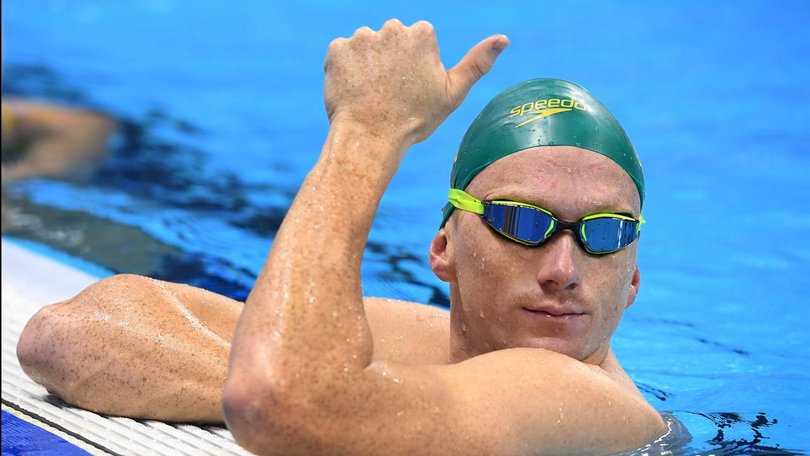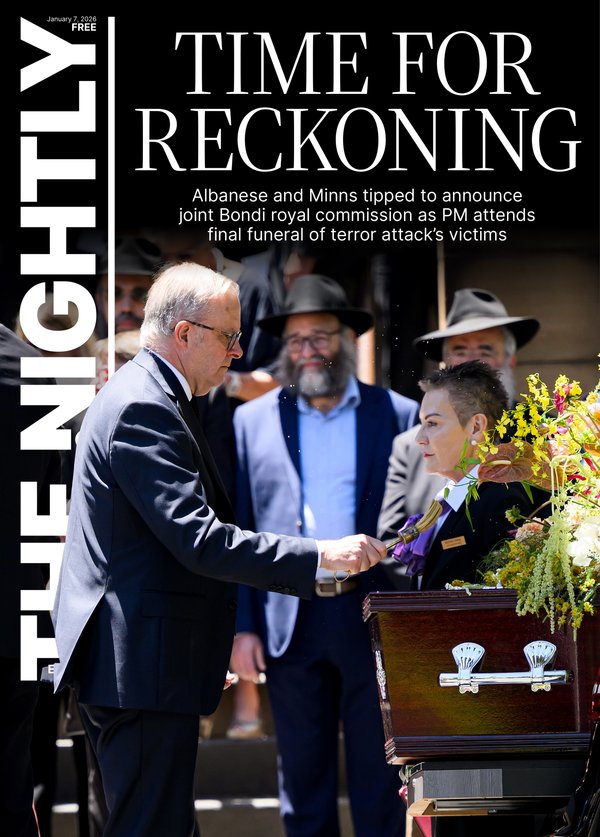Homeless to Olympian: ex-swimmer's remarkable journey

He was dubbed “the next Ian Thorpe”.
Instead a burnt out Daniel Smith became a homeless ice addict.
The swimming prodigy emerged from a five-year drug hell to qualify for the 2016 Rio Olympics - only for his dreams to be dashed once again.
Sign up to The Nightly's newsletters.
Get the first look at the digital newspaper, curated daily stories and breaking headlines delivered to your inbox.
By continuing you agree to our Terms and Privacy Policy.The remarkable journey taught Smith the importance of mental health.
Now clean and sober for more than a decade, he is hoping to share the lesson ahead of the Paris Olympics.
“It hasn’t been an easy journey,” Smith told AAP.
“I want to help other athletes avoid what I went through.”
At 13, Smith broke the 200m freestyle age record that had been set by Olympic great Thorpe.
The next year he won a staggering eight gold medals at the national age championships.
It seemed the sky was the limit.
Instead he crashed and burned.
“Everyone knew me as ‘the next Ian Thorpe’,” he said.
“I didn’t really have a life outside sport.
“I was lost and didn’t really have any sense of identity. Drugs gave me a temporary escape and one thing led to another.”
Smith lost his way after training “too hard, too young”.
“They say your window for making an Olympics and achieving your dream is 18 to 24,” he said.
“I was training like I was 20 when I was just 13. There was always this expectation to keep improving.
“Then I started mixing with the wrong crowd at school which gave me an escape from the limelight - that was how I fell into substance abuse.”
First he dabbled in drinking, then party drugs.
“I was always looking for that next thing,” Smith said.
“Most elite athletes don’t do things half hearted - and I went all in.”
It was a slippery slope.
By 18 he was an “out of control” drug addict.
“Unfortunately it turned me into someone I was never meant to be. I became really nasty, a criminal really,” he said.
“It seemed like I had tried everything - psychologists, doctors - to get off the drugs but no matter what I did I was never able to do it.
“It took me hitting rock bottom to turn my life around.”
That low point came when Smith found himself living on the streets after his exhausted parents kicked him out of their Gold Coast home.
“It wasn’t because my parents didn’t love me. They just didn’t know what to do after trying everything,” he said.
Smith had yet another crack at rehab - and this time something clicked.
“I had a natural gift for swimming but felt like I had wasted my life,” he said.
“My friends were going to jail and mental institutions - some of them had died.
“I was getting into trouble and it was like something hit me and said ‘what are you doing?’.”
In an epiphany, Smith experienced a “flashback of all the things that I had done”.
“I felt very remorseful. I looked at myself in the mirror and thought ‘look at the mess you have created, now you have got to own it’.
“I just happened to be in a very safe rehab program, met the right person at the right time and got the help that I needed to rebuild.”
A rejuvenated Smith launched what became a stunning swimming comeback.
He won bronze at the 2015 world titles before finally achieving his Olympic dream and earning Rio Games selection.
But after finding his feet again, Smith stumbled on what would become his only appearance on the Olympic stage.
“At an Olympics a lot of athletes get one day in their whole life to get it right which means dreams can get crushed,” he said.
“So the Olympics can be a place of pain and unfortunately for me it was.
“I didn’t live up to what I was capable of and I never got another shot at it.”
Smith left Rio without a medal after his 4x200m freestyle relay team finished fourth.
“Did my past have a bit to do with that, because I missed so many years out of the water? Yeah I do believe that,” Smith said of his Rio effort.
“Unfortunately I didn’t quite do what I wanted to do.
“But it was still an amazing experience. I still get to say I went to the Olympics.”
Undaunted, Smith switched his focus to the 2020 Tokyo Games.
However they were delayed 12 months by the COVID-19 pandemic, prompting his retirement from competitive swimming.
Smith hopes his story inspires athletes as they prepare to step into the Paris Games limelight.
Mental health and wellbeing will be a priority at this year’s Olympics after champion gymnast Simone Biles’ very public battle at Tokyo.
Paris initiatives for athletes include a 24-hour helpline in more than 70 languages, an Olympic village safe space to mentally prepare and an AI system flagging threats on social media platforms to prevent online abuse.
Smith said they were encouraging steps but some athletes dealing with burnout may require more.
He said he was passionate about removing the stigma sometimes associated with seeking professional assistance among professional athletes.
“As an elite athlete your life is in the limelight and under scrutiny,” said Smith, who is an ambassador for Brisbane’s The Banyans Healthcare clinic.
“I would encourage anyone who wants to keep on top of their mental health to seek external support.
“But it is up to the individual to work out what support they should have around them and what works best for them.”
Smith is now married and happy, proof that recovery is possible with the right help.
“I have been able to rebuild my life,” he said.
Asked how he feels now about his troubled past, Smith said: “It seems like a bad dream”.
Lifeline 13 11 14
beyondblue 1300 22 4636
